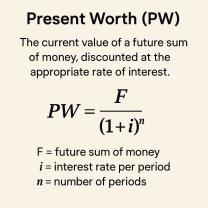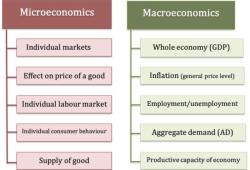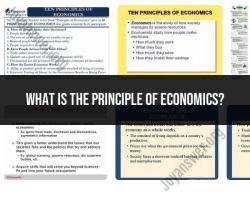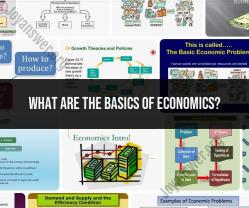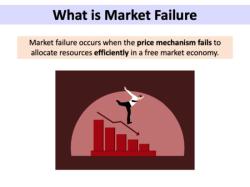What are the fundamental principles of Economics?
The fundamental principles of economics provide the basic framework for understanding how individuals, businesses, and societies make choices in the face of scarcity. Here are some core principles of economics:
Scarcity:
- Resources are limited, and human wants are unlimited. Scarcity is the fundamental economic problem that requires individuals and societies to make choices about how to allocate resources.
Opportunity Cost:
- The cost of any decision is the next best alternative forgone. Opportunity cost reflects the value of what must be sacrificed when a choice is made.
Rational Decision-Making:
- Individuals and firms make decisions based on rational self-interest. They weigh the costs and benefits of different options and choose the one that maximizes their well-being.
Incentives:
- Individuals respond to incentives. Positive incentives, such as rewards or benefits, and negative incentives, such as penalties or costs, influence behavior and decision-making.
Supply and Demand:
- The law of supply states that producers are willing to supply more of a good or service as its price increases. The law of demand states that consumers are willing to buy more of a good or service as its price decreases. The interaction of supply and demand determines market prices.
Trade and Comparative Advantage:
- Trade allows individuals and nations to specialize in the production of goods and services in which they have a comparative advantage (lower opportunity cost). This leads to increased efficiency and mutual benefit.
Marginal Analysis:
- Rational decision-makers compare marginal (additional) benefits and marginal costs when making choices. They consider the incremental impact of a decision to determine whether it is worthwhile.
Markets and Prices:
- Markets, where buyers and sellers interact, allocate resources efficiently. Prices act as signals that convey information about the relative scarcity of goods and services.
Property Rights:
- Clear and secure property rights are essential for economic growth and development. They provide individuals and businesses with the incentive to invest, innovate, and engage in economic activities.
Role of Government:
- Government plays a role in enforcing property rights, ensuring competition, addressing externalities (spillover effects of economic activities), and providing public goods and services.
Gross Domestic Product (GDP):
- GDP measures the total value of goods and services produced in an economy. It is a key indicator of economic performance and is used to assess the standard of living and economic growth.
Inflation and Unemployment:
- Inflation is the general increase in the overall price level, and unemployment refers to the percentage of the labor force that is unemployed. These macroeconomic factors are critical for assessing the health of an economy.
These principles provide a foundation for understanding economic decision-making and behavior. While there are more advanced economic concepts and theories, these core principles offer valuable insights into the workings of economies at a basic level.
What core principles underlie the field of Economics?
The field of economics is a vast and diverse landscape, with different schools of thought emphasizing various aspects and approaches. While there's no single, universally accepted set of "core principles," several fundamental ideas recur across many economic frameworks:
1. Scarcity and Choice: This foundational principle acknowledges that resources are limited, forcing individuals, households, and firms to make choices about how to allocate them to fulfill their needs and wants. This inherent trade-off between options shapes much of economic analysis.
2. Incentives and Optimization: People respond to incentives, seeking to maximize their own benefit (utility) given their resources and constraints. Understanding how incentives influence behavior is crucial for predicting economic outcomes, like market reactions to price changes or individual investment decisions.
3. Markets and Exchange: Markets provide a mechanism for exchange and interaction between buyers and sellers, allocating resources based on supply and demand. Analyzing market forces and their impact on prices, production, and consumption is a central pillar of economic theory.
4. Efficiency and Trade: Specialization and trade allow individuals and economies to focus on their comparative advantages and exchange goods and services at mutually beneficial terms. This principle highlights the potential gains from international trade and economic cooperation.
5. Growth and Development: Understanding the factors driving economic growth and development, such as technological advancements, institutional factors, and human capital, is a key area of focus for economists. Analyzing these elements helps formulate policies and strategies aimed at improving living standards and economic well-being.
Beyond these core principles, other important notions are explored in specific economic fields and philosophies. Here are some examples:
- Behavioral Economics: Examines how psychological and cognitive factors influence economic decision-making.
- Welfare Economics: Evaluates economic policies based on their impact on social welfare and distribution of resources.
- Environmental Economics: Analyzes the relationship between economic activity and the environment.
It's important to remember that these principles are not static or universally accepted. Different schools of thought may interpret or prioritize them differently. Additionally, some argue that focusing solely on principles misses the richness and complexity of economic phenomena, advocating for broader perspectives that encompass social, ethical, and historical considerations.
Ultimately, understanding the diversity of ideas and assumptions within economics is crucial for navigating this multifaceted field. As you delve deeper, you'll encounter various theories and models that utilize these core principles in different ways to explain and analyze economic phenomena.
Feel free to ask further questions about specific economic concepts or explore any of the mentioned principles in more detail!


